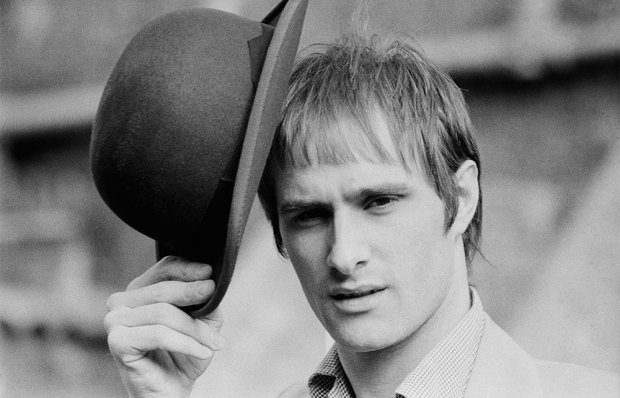I notice that the naturalist Chris Packham has been reported to the police for the ‘crime’ of sniffing a goshawk. I had not known that this was an offence – if I had known, I would not do it quite so often, or at worst, made sure nobody was watching me as I approached the birds, tumescent, in my anorak. Goshawks are diurnal, so night-time does offer the opportunity for a good sniff when they are asleep in their nests. The problem is they are also quite rare, largely due to persecution from gamekeepers and, no matter how you dress it up, snorting the scent of a more widespread raptor, such as a kestrel, does not provide quite the same thrill. Packham sniffed his goshawk live on television, and someone who hates him for his politics reported him to the filth.
The police are bound to take action, because Packham was unfortunate enough to have sniffed the bird the day after our Home Secretary, Suella Braverman, announced that henceforth the police would investigate every reported crime instead of just telling the victims to get stuffed and lump it, which is what happened before. This was portrayed by the government as ‘getting tough on crime’, but it struck me as being futile grandstanding. All Suella did was tell the coppers to take all crimes seriously, i.e. show a bit of interest in their work, but there was no suggestion as to how this aspiration would be realised. As the BBC jubilantly pointed out, over and over, if the police are to investigate every handbag theft then they will have less time to investigate other crimes – unless police numbers are drastically increased. That is certainly a reasonable objection: the Con-Lib coalition government and David Cameron’s administration which followed it greatly reduced the number of policemen and women and only in the last four years have numbers climbed back to a little below what they were under the last Labour government.
In the past two decades, of course, our population has increased by almost eight million, or about 12 per cent, largely as a consequence of inward migration – another benediction from the Blair years. While undoubtedly most of these incomers are now employed as thoracic surgeons, biotech
pioneers, award-winning playwrights, international footballers, Lucasian professors of mathematics etc, it may still be the case that a tiny, tiny, tiny, tiny, tiny proportion might have, on rare occasions and solely because they were either impoverished or felt oppressed, broken the law. So that point about an insufficient number of coppers is reinforced (although oddly it was not mentioned by the BBC).
But that is really less than half the story. It is not just the number of people in the country that is salient, but also the number of offences – and these have risen every day that God sends. Many more offences, fewer police officers – you see the problem. As part of the Blair government’s laudable aim of criminalising everybody in the country, between 1997 and 2008 the number of criminal offences – stuff for which you can be done by the Old Bill – increased by 3,600. Interestingly some of those new laws on the statute book were avian-related, such as banning people from selling a game bird which was shot on a Sunday, or making it illegal to ‘disturb a pack of eggs’ if ordered not to.
Perhaps that is when the goshawk-sniffing prohibition snuck through, then. It may have been a brainchild of Labour’s unforgettably brilliant home secretary Jacqui Smith: ‘We’ve got to stop perverts sniffing goshawks, Gordon.’ I like to think it’s the kind of thing she would have done. Since then the list of offences has risen still further, especially regarding hate crimes and stuff on the internet. This is where Braverman should have made her stand – it would have had more force than simply asking the police to do their jobs properly. Tell them to concentrate on the crimes that cause real misery to the general public and ignore every single crime that has been shoved on the statute book since about 1980.
It may be a little weird to sniff a goshawk without the bird’s consent. It most certainly is rude to call someone a ‘fat poof’ on Facebook, or to address them as ‘sir’ when their name is Loretta. But in general these are not the things which bother the overwhelming majority of the public. They want the scrote who stole their car or their mobile phone sorted out. They want the louts locked up. They would prefer graffiti artists to be honing their trade in an open prison, rather than making everywhere look skanky. It is the police forces’ obsession with crimes which many people do not believe should be actual ‘crimes’, even if they are a bit nasty, which should be tackled. Solve the burglaries, copper – and if you’ve any time left over, then sure, pursue some gammon for re-tweeting a joke about Allah.
This gradual politicisation of the police is what Braverman would have done better to address, along with introducing a bill to abolish police commissioners, who are tendentious and useless. I would prefer it if we went back to the time when all police chief constables were bald, bullet-headed, right-wing bastards who believed that crime was solely the consequence of individual human wickedness. Today, that would be a very useful counterbalance in favour of the victim, given that the rest of the establishment is seemingly on the side of the miscreant, whether it be our increasingly ludicrous judiciary or the vast and expanding legions of social workers, counsellors, NGOs and parole officers etc. A chief constable who knows what a proper crime is and, possessed of a kind of consensually fascistic mindset, encourages his officers to take no prisoner…er, apart from the prisoners, obvs. If Braverman were to change the current limp, progressive mindset of the police and restore to them a notion of what is really meant by crime, she might actually win a few votes.
Got something to add? Join the discussion and comment below.
Get 10 issues for just $10
Subscribe to The Spectator Australia today for the next 10 magazine issues, plus full online access, for just $10.
You might disagree with half of it, but you’ll enjoy reading all of it. Try your first month for free, then just $2 a week for the remainder of your first year.















Comments
Don't miss out
Join the conversation with other Spectator Australia readers. Subscribe to leave a comment.
SUBSCRIBEAlready a subscriber? Log in